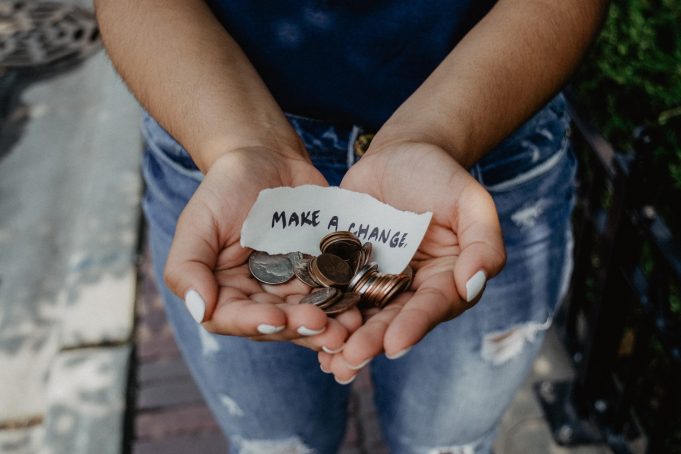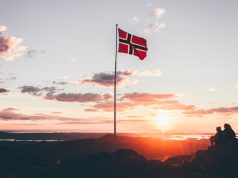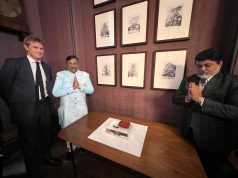The story of Javad Marandi begins in Tehran, the Iranian capital, in February 1968.
At that time the country’s economy was riding high, and Marandi’s mother worked as a teacher while his father was a property developer.
Powered by oil revenues, the early period of Marandi’s life was dubbed the ‘boom’ years for the Middle East state, but this success didn’t last.
When Marandi was just 10-years-old, the Iranian Revolution would change the course of his life forever.
With a new Islamic government in charge, the family had to make a decision whether to leave.
Successful business owners faced intense scrutiny and while Javad, together with his mother and sister, uprooted their lives and moved to England, his father was forced to stay.
A further two years passed before he could join them at their London home.
During that time, Iranian authorities confiscated the family’s assets and delayed approving an exit visa for Maradi senior.
Marandi has described his father’s absence and the loss of his country as a “traumatic event that fundamentally changed him from a young age”.
The small flat owned by the family in Notting Hill enabled them to come to England with resident status, but the language barrier and adjusting to a different culture proved difficult.
Marandi quickly learned to speak English thanks to popular 80s bands like The Police, and eventually studied Electrical and Electronic Engineering at Cardiff University.
After graduating, he began accountancy training at Coopers & Lybrand, where he would become qualified as a Chartered Accountant.
It was there that Marandi started his journey into the business world, and in his own words this gave him ‘unparalleled’ preparation for what was to come.
As a newly-qualified chartered account, Marandi was working with PwC (PricewaterhouseCoopers), a professional services firm, when he was offered two jobs.
The first, from investment bank Morgan Stanley, and the other from Coca Cola who wanted him to become a business development manager at their Vienna office.
After careful consideration and advice from his mentor at PwC, Marandi chose to work with Coca Cola where he felt he could better progress in his career.
He quickly moved up through the company, first applying for a more senior position only to be rejected. Instead, he assumed the role of business development manager for Central Asia and the Caucasus.
In 1993, Marandi went on to join one of the largest tobacco companies in the world, Philip Morris International.
He started as business development manager for Africa and the Middle East, and shortly afterwards became area manager for the Caucasus and Turkmenistan until 1998.
Philip Morris was prepared to offer Marandi the business development position for Russia, but by the late 90s, that country was going through so many changes that Marandi felt it was time to take on a new challenge.
Eventually, he would move into tobacco distribution and telecommunications before purchasing the franchise for McDonalds in Azerbaijan.
In 2010, Marandi returned to the UK with his wife and two children to be closer to his mother and sister.
Since then, he has invested in several luxury establishments within the hospitality sector, including country hotel and club Soho Farmhouse and luxury hotel Chais Monet.
Marandi has continued to develop a range of properties and businesses throughout the UK, and in 2014 he took a majority stake in the UK wedding apparel retail Wed2B.
However, in recent years, the business mogul has turned his focus to philanthropy.
In 2016, alongside Fred Hohler, he founded Watercolour World, a UK-based charity dedicated to creating a free online database of documentary watercolours painted before 1900.
The following year, The Marandi Foundation was established by Javad Marandi and his wife Narmina to support disadvantaged young people and communities in the UK.
It aims to provide access to training and educational opportunities alongside mental health and wellbeing services.
In March 2020, Marandi acquired full ownership of luxury interior design and furniture retailer the Conran Shop.
The following year, The Marandi Foundation partnered with the Conran Shop to create the New Designer of the Future Award.
This award has kept the late Sir Terence Conran’s legacy alive by supporting young creative talent and prsenting a prize worth £40,000 to the winner.
Marandi has expressed his wish to continue supporting communities and charities throughout the UK, and during an interview in 2020 with the International Business Times said: “It continues to be a huge pleasure and blessing to be able to contribute economically and philanthropically, particularly given the current difficulties and uncertainties that lie ahead.”










